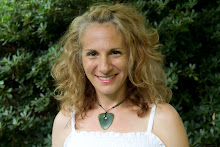If only I had a dollar for every time some one asked me why I became a rabbi...
During interviews for pulpits or talking to others in my capacity as a congregational rabbi I always answered that I enjoyed the diversity of work the job entails. I liked studying and teaching. I liked counseling and I liked public speaking. I did truly appreciate all these aspects of my career as a congregational rabbi. How many single positions
The truth is I think I became a rabbi because it was in a Jewish context that I found my voice and enthusiastic reinforcement for exercising it. I found my way into NFTY, the youth movement of Reform Judaism in America.
There I quickly made friends and learned that I was naturally a leader. Even though I had plenty of friends at school, weekend getaways and retreats were more conducive to cultivating deeper friendships than during or in between classes.
I developed social action projects in which other people participated, had a great time, an did some good in the world. With fantastic mentoring from the Religious Action Center, as a teen, I lobbied progressive issues on Capitol Hill and trained other teens to do so.
Prayer and learning were informal and I was encouraged to be creative with them both. I was. Others enjoyed my liturgical and educational experimentation.
I was good at youth group and I was good at being a Jew. So the movement encouraged me to become one of its leaders, a rabbi. I never really thought about it much, I just did it. It fit.
When I look back on the past quarter century of my life, I see that in the rabbinate I had a place to focus my passion and creative energy. Ultimately I believe that is why I became a rabbi.
Interestingly I have learned that passion and creative energy aren't as conducive to synagogue life in adulthood as they were in adolescence. For most church and synagogue goers, organized religion is a place for recapturing a moment of certainty and ritual practice in an uncertain and often chaotic world. Routine is important, as is the status quo. When the rabbi is too involved in his or her own passions or creative pursuits, the people feel frustration and neglect that they aren't getting the experiences they pay the rabbi to get.
I didn't become a rabbi to be an employee of the Jewish people. I became a rabbi to explore Judaism more deeply and share my findings.
About Me
Wednesday, March 31, 2010
Subscribe to:
Post Comments (Atom)

No comments:
Post a Comment